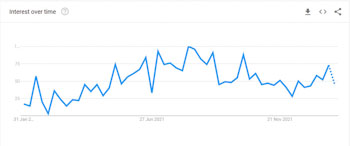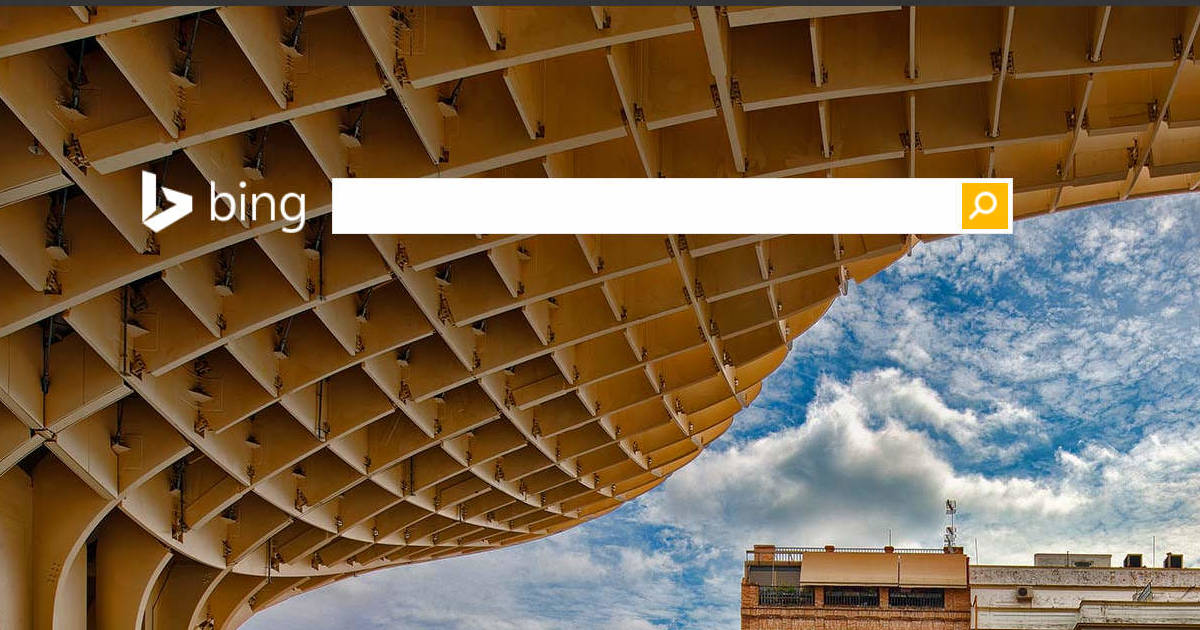Restaurant SEO Tips
We recently published Part 1 of this Search engine optimization guide in an earlier post. In this post we are covering some more advanced points to help you get your restaurant website ranking as high as possible in the search engine results pages (SERPS) and get more potential customers to visit your website.
Key Details You Need On Your Website

Your website should also include key details about your business:
- Opening days and hours
- Complete location with map
- Parking facilities
Adding these details will make it a lot easier for your customers to find your restaurant. Many customers will check your website for directions or menu items, and this is a good example why its important to make sure your website is mobile-friendly. Most people will do this on a mobile device.
Core Vitals – What You Need To Know
Core Vitals have been talked about a lot recently, but do you know what they are and how they affect your website’s SEO.
Core Vitals are yet another initiative from Google to help improve the user experience for anyone visiting sites from the Google search results. Optimizing for Core Web Vitals will improve your website UX by a huge margin and keep Google happy, which should in turn result in better search engine performance.
Google Core Web Vitals consist of three elements that connect to responsiveness of the page, speed stability and their impact on users’ experience.
- LCP (Largest Contentful Paint)
- FID (First Input Delay)
- CLS (Cumulative Layout Shift)
Every Core Web Vital score will be rated as either ‘Good “Needs Improvement” or poor. Google has already begun making use of their Core Web Vitals scores as an approach to rank websites. Therefore, website owners know that a positive user experience isn’t just a “would be nice to have”, it’s a “must-have”, as it’s essential for your SEO to be successful.
Reviewing your web vitals scores for a specific page is easy. Do a quick Lighthouse review and Google will give you your score. Monitoring in real-time of vital web information across all your websites in real-time isn’t so simple but Google Search Console will give you a high-level score.
Encourage Users to Take Action
The call-to-action (CTA) button can be the most effective method to get people to engage in action.
The action could be anything, like booking a table, looking through the menu, writing unanswered questions, or asking for the menu.
Be sure that your CTAs are clear, crisply visible and optimized to target the correct keywords.
Make a Mobile-friendly Website
You may be surprised to learn that mobile searches represent 54.8 percent of all organic web traffic worldwide and it’s even higher than that when looking at local searches.

Mobile optimization is crucial since it allows customers to visit your site at any time and from any location. In addition to improving users experience, having a mobile-friendly site could:
- Help improve search rankings
- Improve trust and credibility
- Improve navigation
Optimizing your mobile-friendly website is essential since it could draw a person to stay longer on the page, which could make them convert into customers. It can also decrease bounce rates on your website.
Perform Restaurant-Focused Keyword Research
When your website is up and running, you can design a number of intent-based pages to target various long-tail terms and keywords for restaurants to boost your restaurant’s ranking in the search engines.
Restaurant SEO strategy is an ongoing approach that will return long-term benefits. The ideal client will locate your restaurant using search terms. The strategic placement of relevant keywords that are your main and secondary long-tail keywords on your site is vital to increasing your reach.
Optimize your site with keywords related to the customers’ search intent and answer relevant questions like:
- What cuisine do you serve?
- Where is your restaurant based?
- What are your unique selling points (USPs)?
The best place to start your keyword research is Google Trends. Here, you can search for specific keywords and find out the search volume across multiple locations globally. This free tool can help you find keywords you already rank for and discover which websites are ranking on top for these keywords.
SEO for restaurant websites is heavily focused on improving your search engine ranking by providing content that potential guests are looking for.
Here’s a Google Trends report of keywords based on the search term ‘Mexican restaurant’:

You can further divide this search based on:
Keywords that are high-level: These keywords are less specific more general in nature and have large search volumes. They are hard to rank for because millions of websites are trying to be found for them. “Restaurants in New York” and “New York restaurants” are examples of high-level keywords.
Keywords specific to the niche: Each restaurant has a distinct kind of customer. You might serve Mediterranean cuisine, whereas the restaurant on the next street specializes in deep-south cuisine. Niche-specific keywords highlight this distinctiveness in the context of cuisine or specialty. So, ‘Creole main dishes in New York’ or ‘best dairy-free ice cream’ are niche keywords.
Keywords associated with your brand: Keywords that are linked to your brand are more specific. They are only displayed when a person is searching for your restaurant and have queries specifically associated with the brand or name. For instance, if your restaurant’s name is “Wobbly Ice Cream’, examples of a branded search would be “Opening hours for Wobbly Ice Cream” or “Menu that includes Wobbly Ice Cream”.
You can use keyword research tools and other keyword tools to discover the best Restaurant SEO Keywords to use on your website.
On-page Restaurant SEO
On-page SEO assists search engine crawlers to determine the relationship between your content to your website and evaluate its importance to the user’s search queries. On-page optimization requires a comprehensive review of the content of your website.

Good online SEO will reduce your bounce rate and keep people on your website.
Good content management and following these guidelines will help you achieve that.
To get the most out of on-page SEO you will need to take action on your website to improve your website’s ranking places.
The following are essential on-page elements to optimize:
Meta Titles
These inform the user about the content of a page on the SERPs. Meta titles are often regarded as the title of the web page.
Meta Description
The meta description is displayed just below the headline on the SERPs and gives a summary of the information. The optimal length for a meta description is between 155 and 160 characters. The meta description should serve as a concise summary of your page and should contain the keyword that is your main focus.
Heading Tags
Heading tags notify both crawlers and users about the content of a web page. They provide a complete layout for the pages.
Note that the use in meta title, meta description, and heading tags don’t directly impact SERP rankings. Google has stopped using these elements to rank sites as they were too easily manipulated. However, they do provide useful information to users and search engines and could make them more likely to go to your website. This can in turn increase the rate of click-throughs to the site, which may increase search engine results.
Use Schema Markup
Like humans, machines also are able to speak their own dialect. Schema markup is structured information that informs web crawlers about your website’s content and aids them in determining if the information you display on your website is appropriate for users or not. Does it answer their questions?
In the ideal scenario, your schema markup must answer your customer’s questions with precise information concerning your business. Schema markup may comprise of:
- Menu
- Cuisine and location
- Ratings and reviews
- Opening hours
- Reservation and booking details
- Address and other contact details
Build Citations
Citations are business listings on directories that are online. Restaurant owners should ensure the citations of your restaurant are on review sites that are popular — which is where most people will discover a restaurant. They can dramatically increase the authority of your domain and help establish your restaurant business to show up well in Google Maps and other local searches.

The citations typically contain the basics of your restaurant’s information including Business description, business category (which type of food you serve, address, name and telephone number (NAP). These citations are an important aspect in SEO advertising for restaurants, as greater than 70 percent of customers will consider your site as trustworthy when it is listed in directories for businesses.
Your restaurant profile on these directory websites will be picked up by the Search engine robots, so it is important that all wire listings are both accurate and consistent in their formatting.
Although creating citations is a time-consuming job, you can always employ virtual assistants or an agency to help make your life easier and accomplish your goals more quickly.
Some places where you can begin creating citations are:
Google Business Profile: More recently known as Google My Business, this application increases your local search rankings by informing users that your restaurant is located near their location and whether they are able to visit your establishment. This is a free application supplied by Google that can boost the credibility of your restaurant in search engine results.
Bing Maps: Adding your restaurant’s details to Bing Maps will mean that visitors are able to find you using the directions displayed on the map, making it more convenient for people to come by.
Facebook: By registering your company on Facebook you will be able to reach an audience of 2.89 billion monthly active users. It is also possible to do geo-targeting to draw customers from certain areas that you specify. Social media posts are a great opportunity to show off your restaurant with beautiful images and videos.
NearMe.Vip: A listing on a well-respected premium business directory such as NearMe.Vip will help you tick many boxes. An authority website backlink, business citations from a high authority site, and a great platform for customers to leave reviews.
Get Reviews

93% of people read reviews about local eateries to determine the best restaurant according to their preferences and dislikes. This number is sufficient to emphasize how important reviews are for building your authority and reputation on the internet.
Reviews assist in highlighting your USPs and in attracting new customers. In addition, reviews have the power to influence purchasing decisions since they provide real-life user experiences. They’re an excellent method to interact with your customers. You can use their reviews to help improve your service and local SEO for restaurants.
Being featured on review sites is a good way to tie in with the previous one since they can also be useful sources of references.
Some trusted websites for restaurant reviews are:
Foursquare
This site has 45 million users with a good mobile-optimized website where your customers can leave easy-to-read, single-line reviews:
Foursquare City Guide
Yellow Pages
Yellow Pages connects local businesses with customers, so a review on this site is good for your local ranking:
The Real Yellow Pages Yelp
This site has more than 224 million unique app reviews. Yelp helps locals discover your business and helps you to retain customers through the positive reviews you gain on the website:
Yelp Best Restaurants
NearMe.Vip
Genuinely Engage on Social Media
There are more than 3.78 billion people are using social media across the globe, and it’s predicted to grow to 4.41 billion in 2025. With such a large number of users, there’s a chance to reach a wide public and expand your business via social media.
While social media won’t directly affect your restaurant’s search engine position, it could boost your brand’s name and increase the amount of traffic that goes to your website.
Collaboration with influencers is an excellent way to spread awareness about the establishment and boost your social media profile. Another key step to boost your social media following is to create an appealing feed. Great images of meals and videos can be very persuasive.
You can make sure you post regularly on social media by simply scheduling your posts using a specific tool. Share photos of unforgettable moments such as celebrity visits, special occasions, and festivals to increase engagement.
The YouTube marketing channel is an excellent method to put your restaurant’s name out to new customers by creating captivating videos of your food and chef or other special occasions.
Encourage Customer Reviews, Interactions, and Social Mentions

Positive reviews from your clients and mentions on other sites and social media platforms can boost your ranking on search engines. Encouragement of reviews shows your customers that you value their opinions as well as their comments on the products and products and services you offer.
If you respond to reviews or comments posted on websites or on social media and other social media, it assists Google to suggest auto-generated answers to the most frequently asked questions about your restaurant. Your efforts to improve SEO for local restaurants can also yield results when your patrons actively leave feedback and provide reviews.
You should engage with all customers on Social Media by responding to each and every review, positive and negative. This is a great way to show you are engaged with your customers and respond to them.
Create and Promote Groundbreaking Content
The quality of content plays a crucial part in educating, convincing, and reminding customers of your restaurant.
The creation of a blog is essential to generating organic results for your site. The blog’s topics should be divided into relevant categories such as food and beverages, as well as focusing on a range of keywords in the food business.
It takes time and works to make this happen but a well-written blog that is updated regularly will grow a loyal audience that can be turned into new customers.
Try some of these ideas to get your blog up and running:
Recipes: You can talk about the secrets to your most renowned dish or create a series of dessert recipes that you can try at home from your cooks.
Customer stories: These stories could be about good experiences your customers have had at your restaurant.
Food-related content: These could be about the source of your meals or the reason why a particular ingredient is utilized in recipes.
Best practices: Discuss your policies and plans, for example, the reasons you don’t utilize any plastics in your restaurant, or the charities you’ll be donating to.
Highlights from events: Share details about the event with a famous guest or discuss the uniqueness of the food or the decor on a specific day.
Be Consistent for Local SEO Restaurant Success
The next step is to get your blog post in front of people. Develop a distribution pipeline in order to post your blog’s content on social media, and also in your newsletter.

Restaurant SEO is a great way to get your business’ name before your intended customers. To be at the top of the results of a search, you must implement a thorough SEO strategy that is consistent in its efforts.
When you begin to rank for your desired keywords, you need to keep working on your SEO. It is a long-term commitment to creating an experience that is seamless for users. You need to make sure you regularly update your site in line with the most recent Google updates and stay on top of things as they change.
The workload is more often than not too much for a business owner to cope with. You may also solicit help from a marketing company or an SEO expert to enhance your efforts. With a solid online presence and continuous optimization, you can propel your restaurant to higher levels, both locally and internationally!
To find out how LinkDaddy® could help you get on top of your restaurant website SEO, sign up for a free trial and get a $30 campaign as a bonus. Just click here.






